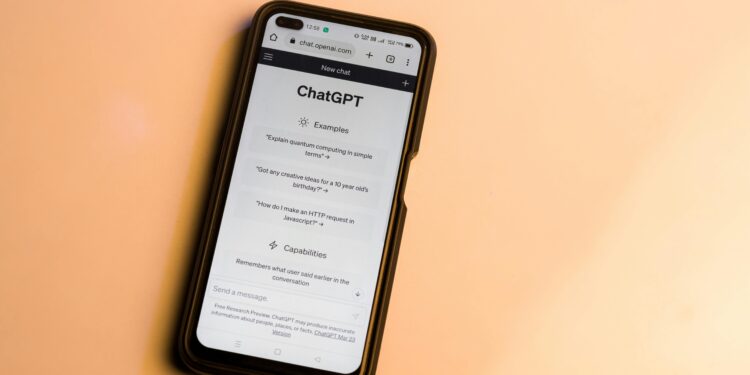AI as a Study Buddy: How Students Are Reframing the Role of ChatGPT

The modern student’s toolkit no longer revolves solely around highlighters, notebooks, and late-night coffee. Increasingly, ChatGPT has become a virtual study buddy, offering learners a new way to approach assignments, note-taking, and exam prep.
Far from being just a quick-answer machine, this AI study assistant is reshaping how students brainstorm, organise, and reinforce knowledge. What makes this chatbot unique isn’t just its ability to provide information, but how it integrates into everyday study habits, acting more like a digital learning partner than a shortcut.
This shift raises important questions: How are students using AI ethically? Can tools like ChatGPT genuinely improve learning outcomes instead of encouraging dependency?
Beyond Quick Fixes: Chatbots as Digital Study Tools
In its early buzz, ChatGPT was framed as a threat to education. It was seen as something students might use to cut corners. But many learners are reframing it as an intelligent learning assistant. Instead of copying answers, they’re asking it to explain tough concepts in simpler terms, summarise long readings, or even generate sample practice questions.
This enables chatbots to function more like a personalised study support system, comparable to flashcards or student productivity apps. The difference is adaptability.
Whether someone is tackling complex math, brainstorming essay structures, or reviewing key terms, chatbots can adjust to the learner’s needs, fitting seamlessly into different study organisation styles.
1. Brainstorming Made Smarter
Brainstorming is one of the areas where ChatGPT shines. Students often feel stuck staring at a blank page. By asking the AI for prompts, outlines, or perspective shifts, they can jumpstart creativity without outsourcing the entire process.
Here, ChatGPT acts as an AI-powered note-taking assistant. It doesn’t replace original thought but provides a springboard for further exploration. This mirrors the logic behind traditional study aid technology. It’s a tool for scaffolding ideas, not producing the finished work.
2. Reinforcing Learning Through AI Study Practices
Students are also using ChatGPT for spaced repetition, quizzes, and quick recaps of topics. In this way, the tool becomes an interactive study tool that reinforces long-term memory retention. Asking chatbots to “quiz me on this chapter” or “explain this concept like I’m five” transforms static studying into a dynamic process.
When students use AI chatbots as study partners, the interactive exchange emulates the same sense of challenge, progress, and reward that drives the effectiveness of gamified pedagogies in education.
This aligns with modern adaptive learning tools, which personalise reinforcement based on user input. For students who might struggle with consistency, having a virtual study buddy available 24/7 provides accountability and flexibility.
3. ChatGPT and Study Organisation
Another major benefit is study organisation. With its ability to structure schedules, set task priorities, and break down projects, ChatGPT is functioning as a smart study technique enhancer. Students can create revision timetables or break essays into manageable steps, reducing stress and improving time management.
Combined with student productivity apps like Notion or Google Calendar, ChatGPT becomes part of a larger digital study ecosystem that balances efficiency with depth.
4. How Students Frame Chatbots in Their Daily Study Habits
What’s most interesting is the way students incorporate today’s chatbots into study rituals. Some use it to brainstorm in the morning, others rely on it for late-night question recaps. The AI has become part of the “being alone together” phenomenon, where students still work independently, but with a digital learning partner quietly assisting in the background.
This reflects a broader cultural shift: AI isn’t replacing hard work; it’s shaping how learners pace themselves, reflect, and engage with material.
The Ethical Question: Is it Gaming the System or Reinventing It?
With recent innovations in education, critics often ask, Does chatbot use risk creating overreliance? The answer always depends on intent.
Using chatbots as a study aid technology is not inherently unethical. Like calculators in math, the tool becomes problematic only when it replaces learning instead of enhancing it.
Many schools are now framing ethical AI use in education guidelines. Students are encouraged to disclose AI use, verify sources, and treat the AI as a support rather than a substitute. This ensures ChatGPT remains a virtual study buddy rather than a ghostwriter.
Key Takeaways
- ChatGPT is increasingly seen as an AI study assistant, not a shortcut.
- It helps with study organisation, brainstorming, and reinforcement of knowledge.
- Students are using chatbots ethically by treating them as a virtual study buddy rather than outsourcing entire tasks.
- The tool fits naturally into digital study ecosystems alongside student productivity apps and other interactive study tools.
- The real benefit lies in improved adaptability, personalisation, and reduced stress during intensive learning phases.
Looking Forward: AI as Part of the Educational Landscape
As universities experiment with digital transformation strategies, tools like ChatGPT are likely to be officially integrated into classrooms. Some professors are already designing assignments that involve AI-assisted brainstorming but require human critical evaluation. Others are teaching “AI literacy” to ensure students understand not just how to use these tools, but how to question them.
In this sense, ChatGPT represents not just a study buddy but also a stepping stone to the future of education, where AI literacy itself is a skill as vital as note-taking or time management.
In the end, a chatbot doesn’t eliminate the need for hard work, but reframes it. By providing structure, feedback, and companionship, it has become the study buddy for a digital generation, balancing efficiency with integrity in the pursuit of learning.







